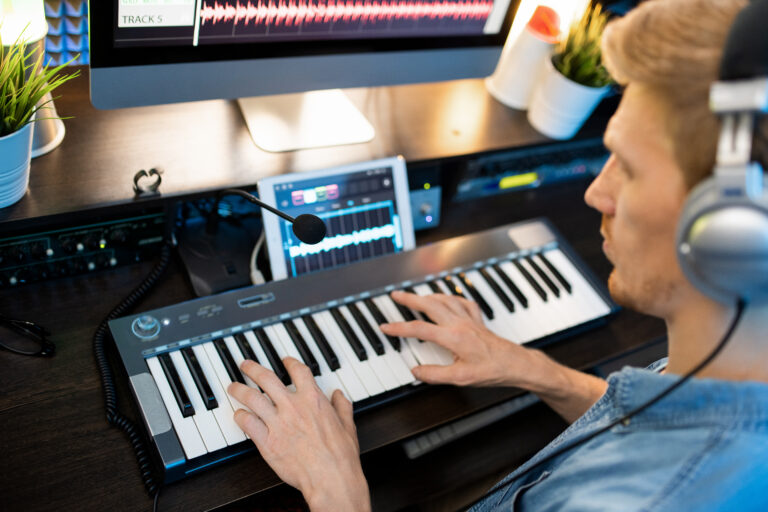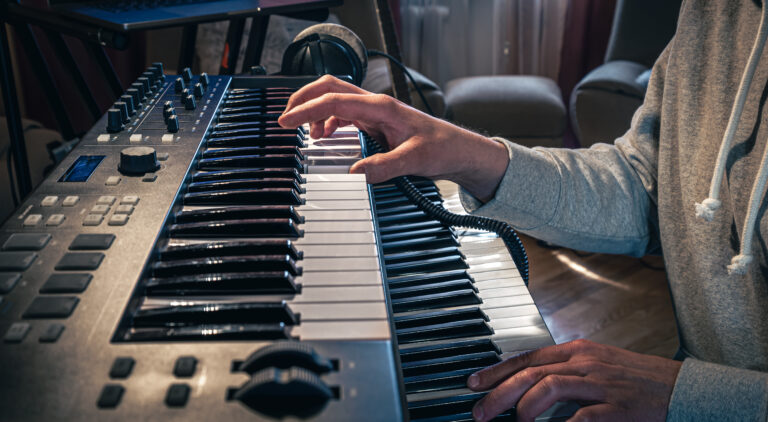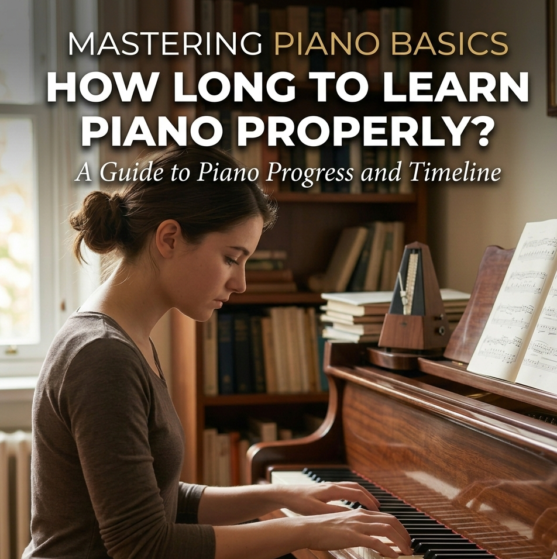What keyboards do professional musicians use?

The professional musician’s toolkit is an extension of themselves, a carefully curated collection of instruments that unlock their creative vision. Keyboards, in their diverse forms, hold a prominent position in this arsenal. Unlike a single, specialized instrument, keyboards offer a powerful versatility, adapting to a wide range of musical styles and genres.
A Spectrum of Sounds | Digital Workstations and Synthesizers

Modern professional musicians often gravitate towards digital workstations and synthesizers. These instruments provide a vast sonic palette, replicating a multitude of instruments – from classic pianos, organs, and strings to electronic soundscapes and genre-specific textures. This sonic versatility allows the musician to seamlessly integrate with different musical projects, be it replicating orchestral arrangements or crafting cutting-edge electronic music.
Beyond Mimicry | The Power of Synthesis

Professional musicians aren’t just replicating existing sounds with their keyboards. Synthesizers, in particular, offer the power of sound creation. By manipulating parameters like oscillators, filters, and envelopes, musicians can craft entirely new and unique timbres, pushing the boundaries of sonic exploration. This creative potential allows them to develop a signature sound and contribute a unique sonic fingerprint to their music.
The Tactile Experience | Weighted Keys and Stage Pianos

For some professional musicians, particularly those with a classical or jazz background, the feel of the keyboard is paramount. Digital pianos with weighted keys offer a playing experience that mimics the action and resistance of an acoustic piano. This allows for a more nuanced and expressive performance, essential for pianists accustomed to the traditional instrument. Stage pianos, combining weighted keys with portability and a focus on essential piano sounds, are often favored by touring musicians.
Control and Performance | MIDI Controllers

While some keyboards offer a complete sonic package, others focus on control and performance. MIDI controllers are instruments devoid of internal sounds, instead functioning as interfaces that send control data to external sound sources like synthesizers or computers. This allows musicians to leverage their preferred playing surface – whether it be keys, pads, or knobs – to manipulate sounds and create dynamic performances.
Conclusion | The Right Tool for the Job

The keyboard a professional musician chooses depends on their individual needs and musical style. From the vast sonic libraries of digital workstations to the expressive touch of weighted keys and the creative potential of synthesizers, keyboards offer a powerful and versatile tool for musical expression. Want to play Keyboard like a professional? Enroll now
For more information and exciting resources about learning music, visit our website at The Mystic Keys. For more music content and exciting offers follow us on







